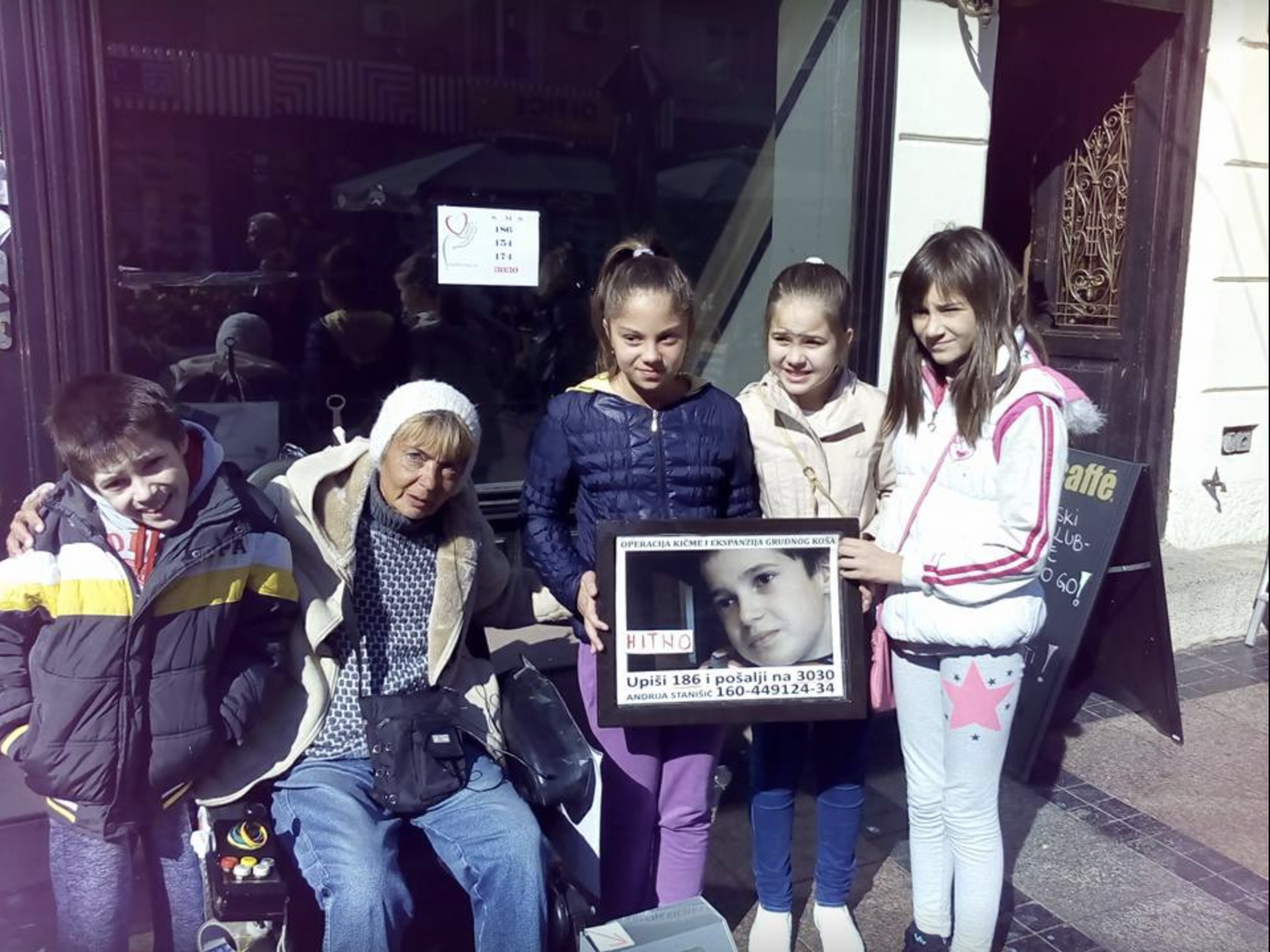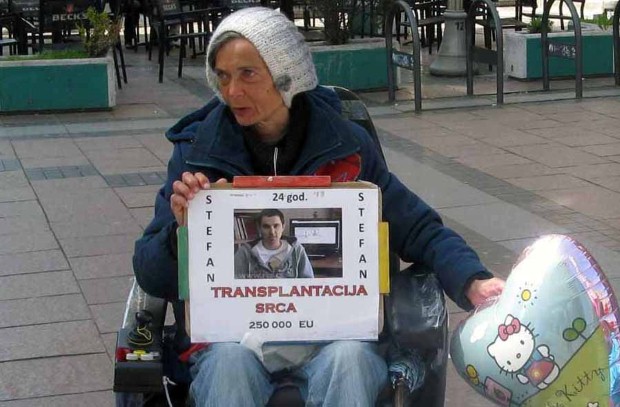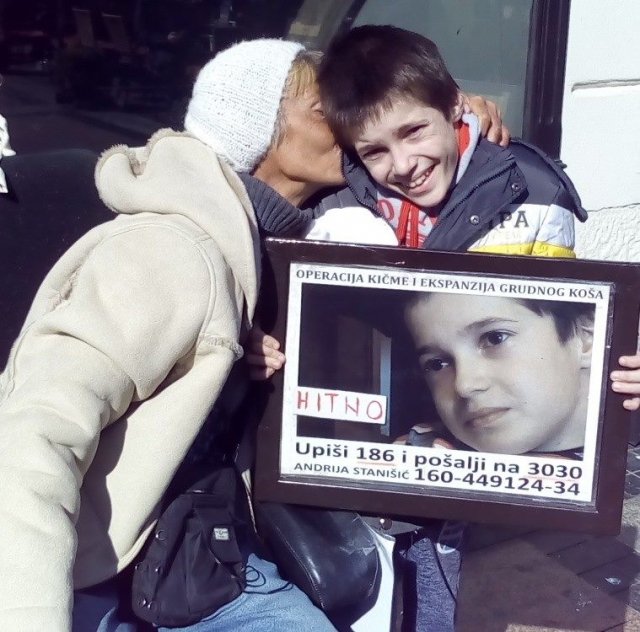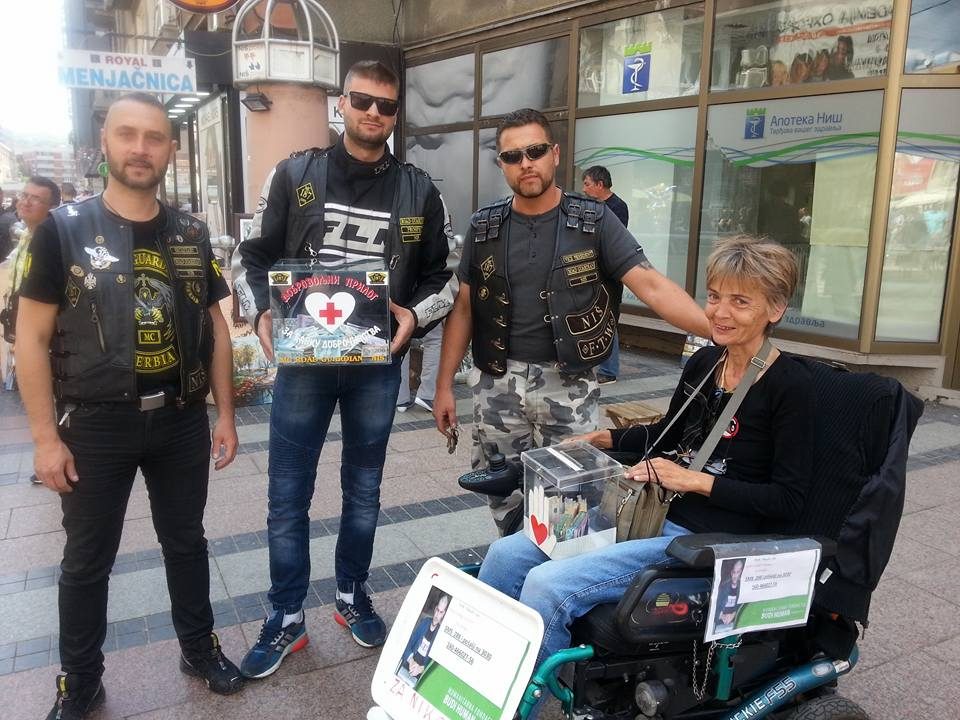
I don’t recall the first time I saw her. I know she was sitting in a wheelchair, collecting money for people in need and for the treatment of those who are suffering from various kinds of ailments. Several times, I left a small contribution hoping that, this time, it would end up in the right hands.
I don’t recall the first time I saw her. I know she was sitting in a wheelchair, collecting money for people in need and for the treatment of those who are suffering from various kinds of ailments. At least, that was what was written on the cards and photographs that were hanging from the sides or her wheelchair. Several times, I left a small contribution hoping that, this time, it would end up in the right hands. In all honesty, I didn’t pay much attention to her.
I remember the time when I was constantly giving money to a boy who would sit in the pedestrian zone in a wheelchair. It turned out he was not disabled and, after his ‘’shift” was over, he would get out of the wheelchair and walk home. I would also regularly buy greeting cards to help the children with disabilities. I learned afterward that the money was not going to the children, but to the people who print the greeting cards.
For those reasons, I lost interest in donating. I was tired of the fake beggars and those who collect money for ‘’humanitarian’’ purposes just to have the money end up who knows where. I apologize to those who are the exception, of whom there are not many. This story is, however, about precisely that – the exception.
I would pass by her day after day. She was not always in the same place, but she was always in the same old wheelchair with the same jar where people would leave their voluntary contributions. She would regularly change the photographs and signs on her wheelchair, which displayed appeals for help for those in need treatment, many of whom were from abroad. She was most often collecting money for children and young people. Days would pass, then weeks, and months… And every day she would be there, in the pedestrian zone, and sometimes, when I would walk past her, I would leave some small change. But one day, I noticed a photograph of my friend’s daughter hanging from her wheelchair. I knew the girl was suffering from a rare disease, and this woman was collecting money for her treatment. I immediately called my friend and asked him if he knew she was collecting money for the treatment of his daughter. He said he was aware and that the woman had already collected a large sum of money for her.

I was surprised. Only then, after hearing all the words of praise about her, was I made aware that the money was actually going where it was needed. In fact, I realized that there truly is someone you could believe in. And other people also started to believe in her when they became aware of her charity work and after the media began to write about her humanitarian efforts.
I then started to inquire about her. I learned that for a period of twenty years she was having problems with her bones and that a few years ago the disease overcame her body, limiting her movement. She had studied law and the French language. Now, she collects money to help those in need of different types of treatment. She also writes poetry and the money she earns from her book sales is given to humanitarian causes. She asks for nothing in return because she says she doesn’t need anything.

She is happy that she is able to help others, which, she says, fulfills her mission in life, and she has raised money for people from many different places. She is always there, come rain or shine, snow or wind, with the same mission – to help someone each and every day. And she has experienced her own problems, indeed. Money has been stolen from her, she has been forbidden to place her wheelchair in front of the retail shop windows, and her worn-out wheelchair has collapsed before so that she could not continue with her mission for a time. A while back, someone launched a campaign to collect contributions for the purchase of a new wheelchair, which she was given so that she could continue with her humanitarian work. With the support of the local community, she was able to continue her fight to support those in need.
In December of last year, she finally got her place in the sun when the local government gave her recognition for her work. In the pedestrian zone where she is often located, a small glass case was built for her with the name “Bank of Benevolence.” You can now leave your money in this box at any time and it will, without doubt, go towards humanitarian causes.

Now I am sure that the contributions I mentioned at this story’s outset were, indeed, ending up in the right hands. I admit: I did not believe then, but I do believe now.
Marina Adamović. Humanitarian. Poet. A brave woman who fights for what she believes. A brave woman who fights for others. Her name should be remembered. If you pass by her one day on the streets of Niš in Serbia, leave a donation and know that it will be in safe hands and will go to those who truly need it.
This publication has been selected as part of the Srđan Aleksić Youth Competition, a regional storytelling competition that challenges youth to actively engage with their own communities to discover, document, and share stories of moral courage, interethnic cooperation, and positive social change. The competition is a primary component of the Post-Conflict Research Center’s award-winning Ordinary Heroes Peacebuilding Program, which utilizes international stories of rescuer behavior and moral courage to promote interethnic understanding and peace among the citizens of the Western Balkans.
The Balkan Diskurs Youth Correspondent Program is made possible by funding from the Robert Bosch Stiftung and the National Endowment for Democracy (NED).






